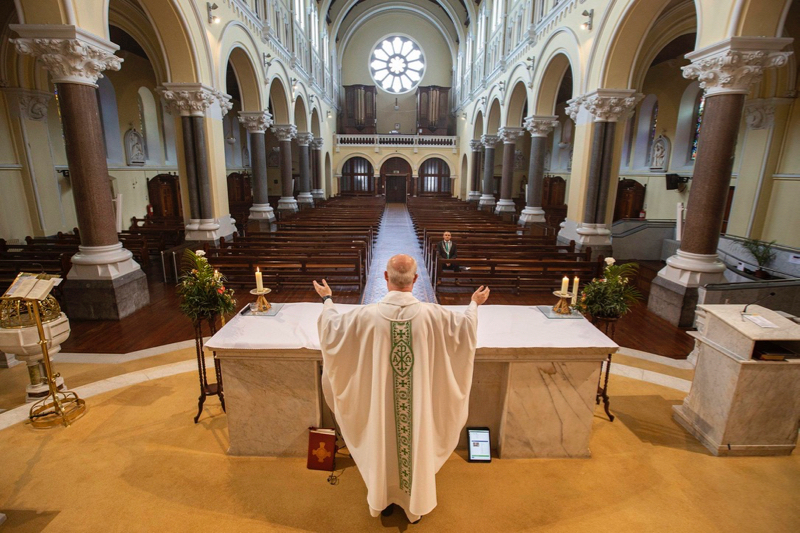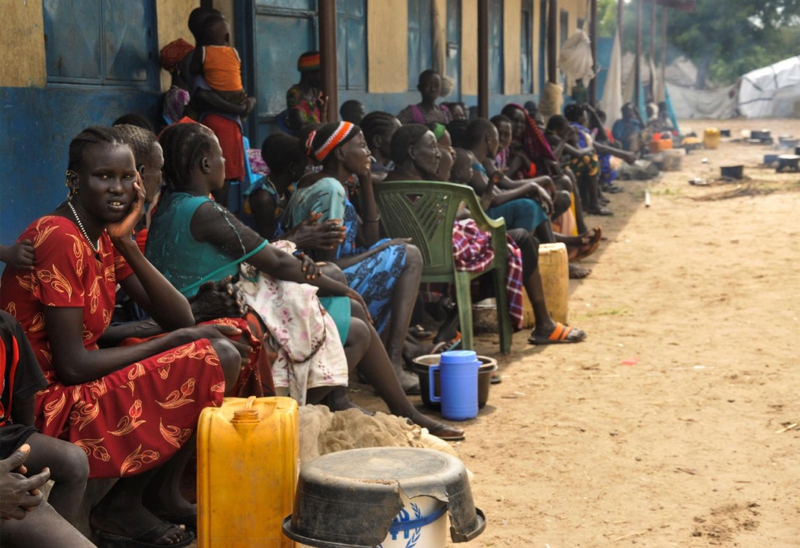The German bishops’ conference president Bishop Georg Bätzing has rejected Polish conference president Archbishop Stanislaw Gadecki’s criticism of the German synodal procedure which he expressed in an open letter on 22 February. Gadecki had described his unease with the German synodal procedure which he suspected of “seeking the truth outside the Gospel”. The German Church was “not taking church renewal lightly and in no way outside the World Church”, Bätzing underlined in his reply. He recalled that the German bishops had adopted a “binding synodal procedure” to reduce clerical power as a result of the 2018 German Abuse Study, which showed that between 1946 and 2014 1,670 priests had abused 3,677 victims and thousands of Catholics left the Church as a consequence. “This point of departure, which you do not mention in your open letter, is most important”, Bätzing explained in his reply. “It is imperative to tackle the systemic causes of the unspeakable suffering which was caused by church representatives, most of them priests. That is crucial in order to make it at all possible once again to proclaim the Gospel Message. This is the only way we can regain the credibility of the faithful that we have gambled away”, Bätzing emphasised.
Cardinal Berhaneyesus Souraphiel, Archbishop of Addis Ababa, has welcomed a humanitarian truce to allow aid to reach millions of people in Ethiopia’s war-affected region of Tigray. “The Church welcomes the government’s announcement of a truce in hope that it will help the innocent people affected by the war,” Cardinal Souraphiel said. Ethiopia’s government announced the indefinite and immediate truce on 24 March and urged Tigray’s defence forces to comply. In response, Tigrayan rebel leaders accepted the truce on condition it would allow aid to reach the 80 per cent of Tigrayans who have insufficient food and the 700,000 facing famine.
A delegation from Latin America, including a Catholic bishop from Brazil, was in Brussels on 24 March to raise awareness about the effects of mining on vulnerable communities. It urged the European Union to pressure the corporate world to take responsibility for their actions and called for a binding treaty on business and human rights. Delegate Bishop Vicente Ferreira is the auxiliary bishop at Brumadinho, in the Archdiocese of Belo Horizonte, where a catastrophic tailings dam collapse in January 2019 killed 272 people. British companies are among the investors. Bishop Ferreira urged politicians, “to listen to communities and those affected by this crime.” The Latin American Churches and Mining Network supported the trip.
Plans by the US Catholic bishops for a $28 million programme focussing on the Real Presence of Christ in the Eucharist has raised questions over the price tag. The event has been prompted by a 2019 Pew survey showing that 69 per cent of Catholics don’t believe in the Real Presence. The bishops responded with a document and plans for a National Eucharistic Congress in 2024 which culminates a multi-year “Eucharist Revival” set to launch in June on the feast of Corpus Christi. Critics say that instead of an expensive national conference, the bishops should make recommendations for dioceses to follow locally.
Protecting the human rights of people fleeing from or caught up in conflict zones must be as big a priority as providing them with basic material needs, the leader of an international anti-trafficking network has warned. Comboni Sister Gabriella Bottani, international coordinator of Talitha Kum, said in Rome on 24 March that, “the best way to prevent abuses, including human trafficking and exploitation, is to stop what generates the huge numbers of potential victims: war, conflict and social instability.” She gave the example of Syria, “where people have been forced into armed conflict, prostitution, marriage or being sex slaves for rebels or army personnel.”
The city government of Jakarta is boosting funds to refurbish churches and other places of worship in the Indonesian capital. Christian churches, Muslim mosques and Buddhist temples have all benefited from the Worship Place Operational Aid programme, introduced in 2019. The programme has provided $10.65 million to renovate more than 3,679 places of worship, including 1,379 churches. Funds have also paid church workers and teachers in Sunday schools. “Through this, we wish to promote tolerance of all religions in Jakarta,” said a government spokesman in the Muslim-majority country.
Pakistan’s government has awarded one of its highest civilian awards to a 12-year-old Catholic carpet maker who was shot dead on Easter Sunday 1995 for campaigning against child labour. President Arif Alvi presented the Sitara-e-Shujaat award for bravery to Iqbal Masih’s older brother, Patris, in Islamabad on 23 March, who said, “it is an honour for Christians and I thank the president for remembering the martyrdom of my brother.” Sold into slavery at a carpet factory at the age of four by his father, Iqbal Masih was freed by the Bonded Labour Liberation Front at the age of 10. He went on to expose bonded child labour in Pakistan’s carpet industry and helped win the release of some 3,000 other children from bonded labour.
Fr Christian Carlassare, the 44-year-old Italian priest who was shot and injured last year on the eve of his ordination as the bishop of Rumbek Diocese in South Sudan was finally ordained on Friday 25 March. Carlassare suffered serious injuries after men broke into his house in Rumbek town in east South Sudan and shot him. His ordination was postponed to allow the Comboni Missionary to undergo treatment. Six people, including a Catholic priest, are on trial in connection with the shooting. The ordination was presided over by retired Sudan Cardinal, Zubeir Wako. Carlassare is the first European priest to be ordained a bishop by an African cardinal.
Pope Francis has sent “heartfelt condolences” to Chinese President Xi Jinping for all affected by a plane crash in Southern China on 21 March which killed all 132 people on board. In a telegram, signed by his Secretary of State Cardinal Pietro Parolin, the Pope offered his prayers for the victims and for the consolation of those who are grieving. The Boeing 737 of China Eastern Airlines, flying from Kunming to Guangzhou, nose-dived and crashed in a heavily-forested area in Guangxi. The crash is China’s most deadly aviation incident in nearly three decades.



 Loading ...
Loading ...